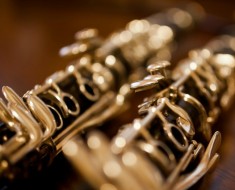Beethoven, Mozart, Schubert, Bruckner, Haydn and Mahler have at least one thing in common – they all died in Vienna. Schubert was also born there. One writer suggests ‘that during the period 1740-1800 more music of recognised greatness was composed in Vienna than in any other city of the world’ – then and since, one might add. The city was a meeting place of three languages and cultures. Administration (often bureaucratic and inefficient) was carried out in German whilst the many resident or visiting nobles and their families cultivated the use of French and the large Italian community maintained the traditions of their position in the Hapsburg Empire.
Maria Theresa reigned from 1740 to 1780 and she and her court earlier in her reign attended various church occasions 78 times a year. Doubtless there was a demand for new church music and such events which were often preceded by musical processions. As many as 500 part-time musicians and singers were employed in this period.
Concerts were frequently held in the theatres and great houses rather than in concert halls which came later.
By the end of the 19th Century the shift from aristocratic patronage to a broader civic base met the needs of a literate public of active amateurs from whose ranks Schubert’s friends and supporters came. Writing to his father in 1781, Mozart said ‘Vienna is the best place in the world for my profession’. He appeared in 71 concerts in the years 1781-1785 and his piano concertos were first performed there. Beethoven was able to enjoy a social position which Mozart and Haydn had barely achieved by the end of their lives. (It helped of course that the Archduke Rudolph -brother of the Emperor- was his adoring pupil). Yet all of the ‘classical’ composers were in their different ways honoured in the city even though often unrewarded financially.
In later years Mahler was not so well treated. He became a victim of the anti-Semitism that one day would fuel Nazism, and although he was the greatest conductor Vienna had ever known, he was effectively chased from the city, taking up an appointment as conductor of the New York Philharmonic.
B.R.



